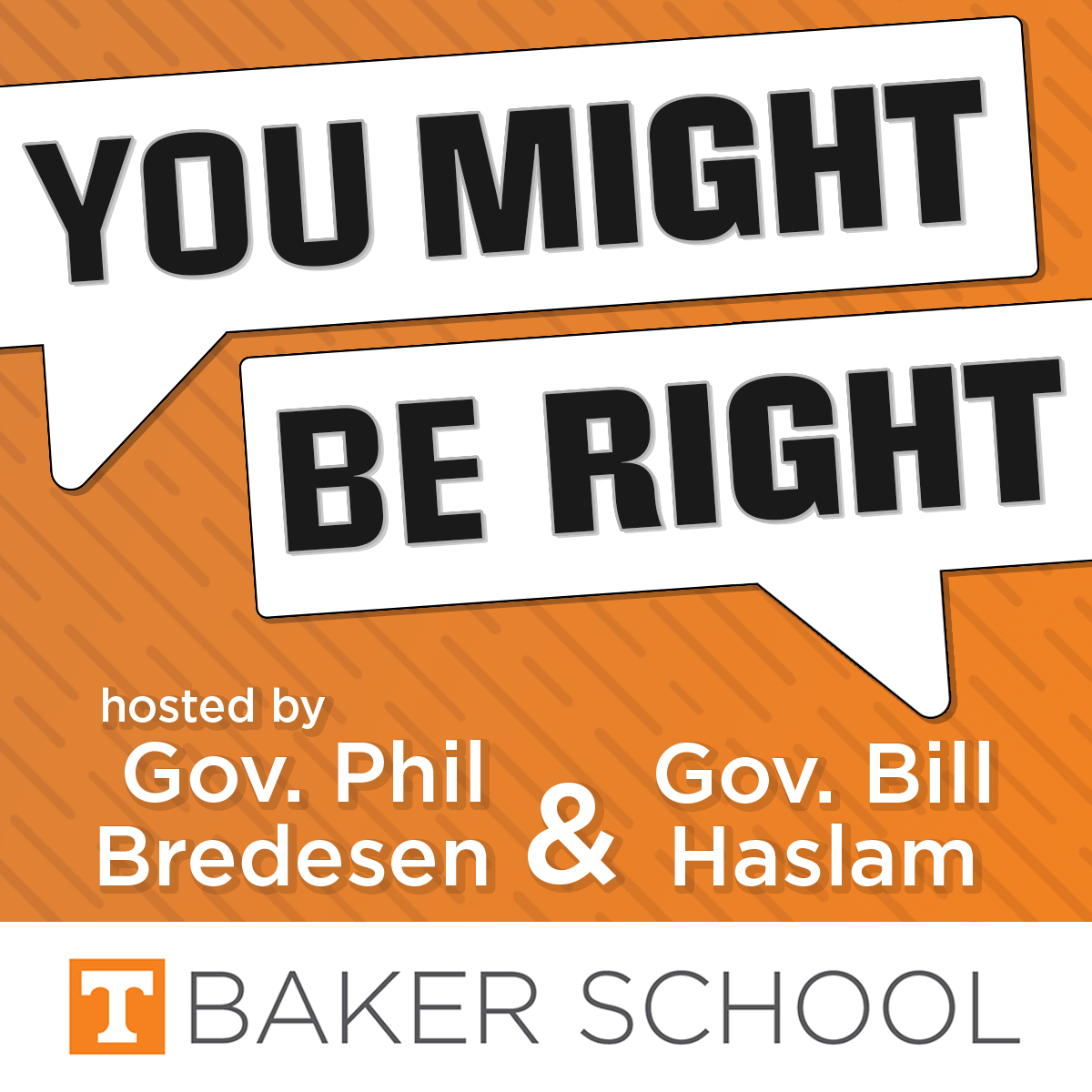What Can We Do About Gun Violence?
EPISODE 1: Arne Duncan and David French join Governors Bredesen and Haslam to discuss potential avenues to reducing gun violence in the first episode of You Might be Right
Co-hosts and former Tennessee Governors Phil Bredesen and Bill Haslam draw on their own experiences and the expertise of two guests with very different perspectives to discuss what we can do to reduce gun violence.
“The parallels to COVID are pretty significant.”
The governor’s first guest is Arne Duncan, former Secretary of Education under President Obama, who has since founded a nonprofit, Chicago CRED, that aims to reduce gun violence in his hometown.
How can a place like Chicago – which has very strict gun laws – have so much gun violence? Where are the guns coming from? Duncan related the city’s gun violence epidemic to another recent public health crisis: the COVID-19 pandemic.
“I try to remind folks that Chicago isn’t an island. We don’t have a moat around us,” Duncan said. “I live about 15, 20 minutes from the Indiana border. Indiana has very lax gun laws. And so, the guns pour into our state from Indiana.”
“A small step, but a significant step”
Duncan called the recently passed Safer Communities Act “a small step, but a significant step,” noting that while “there’s still so much that wasn’t in there,” it represented the first step forward in decades.
Read more about the Safer Communities Act from the National Conference on State Legislatures here.
“Realistic, with a caveat.”
In the second half of the episode, Governors Bredesen and Haslam are joined by David French, a political commentator, author, and veteran who regularly writes for The Dispatch and The Atlantic. French pointed to red flag laws as a potential path toward reducing gun violence.
“What the red flag law says is if you by your behavior have demonstrated that you’re a danger to yourself or others, then the state will have the ability to seize your weapons and prevent you from purchasing new weapons so long as the order lasts,” French told the governors.
Red flag laws rely on someone being observant and vigilant enough to act on a concern if the law is to work. French categorized their effectiveness as “realistic, with a caveat. An enormous amount depends on public education, including education of law enforcement.”
“The one thing you definitely don’t do.”
Governor Bredesen, who recounted how he grew up in a rural community, owned his first gun at 14, and learned to shoot in school, pressed both guests about how the culture around guns and gun ownership has evolved from what he experienced growing up.
“I think life has gotten cheaper,” Duncan said. “I think the lethality of the guns is very different… A gun you may have used for hunting is very different than an assault weapon.”
French, who noted he grew up in the South and doesn’t remember a time when there wasn’t a gun in the house, said, “I grew up learning that owning a gun was a deep, deep, responsibility and that the use of a gun against another human being is thinkable only in the most extreme of life-threatening circumstances.”
“The one thing you definitely don’t do is sort of brandish weapons or carry weapons brazenly in public to unsettle other people,” French added. [Read French’s piece, “Against Gun Idolatry,” in The Dispatch here.]
Subscribe and follow You Might be Right wherever you get your audio content – including Apple Podcasts and Spotify – to never miss an episode, or sign up for our email list to receive new episodes straight to your inbox each week here.

Join the conversation on Twitter by following @UTBakerSchool, @PhilBredesen, and @BillHaslam.